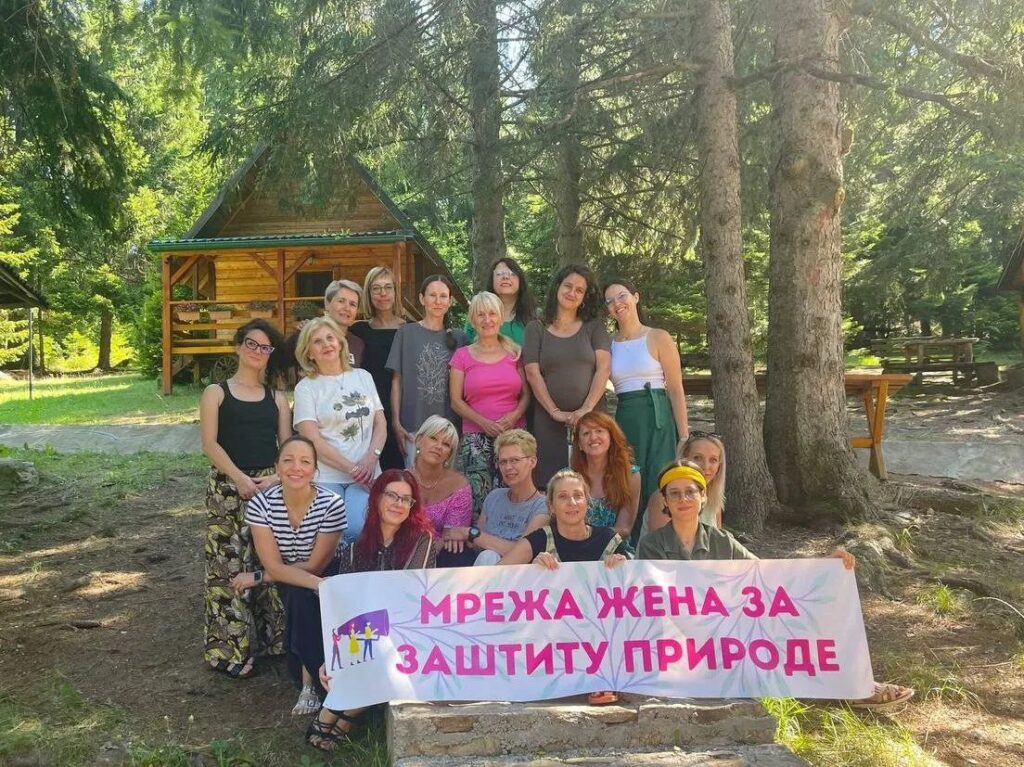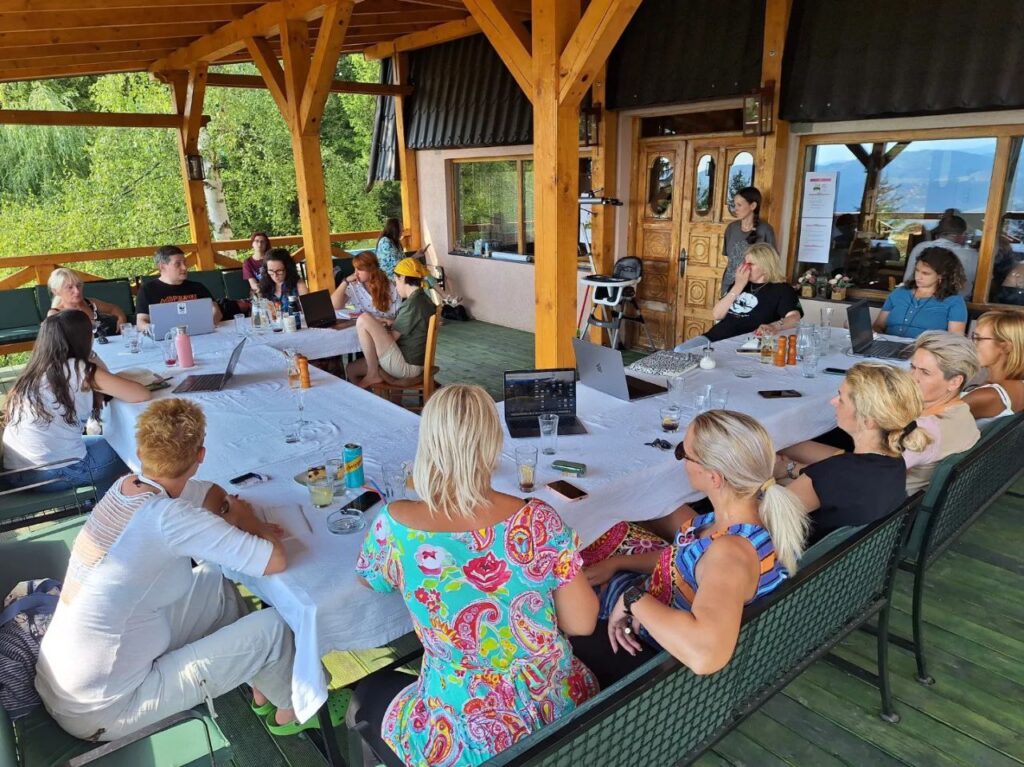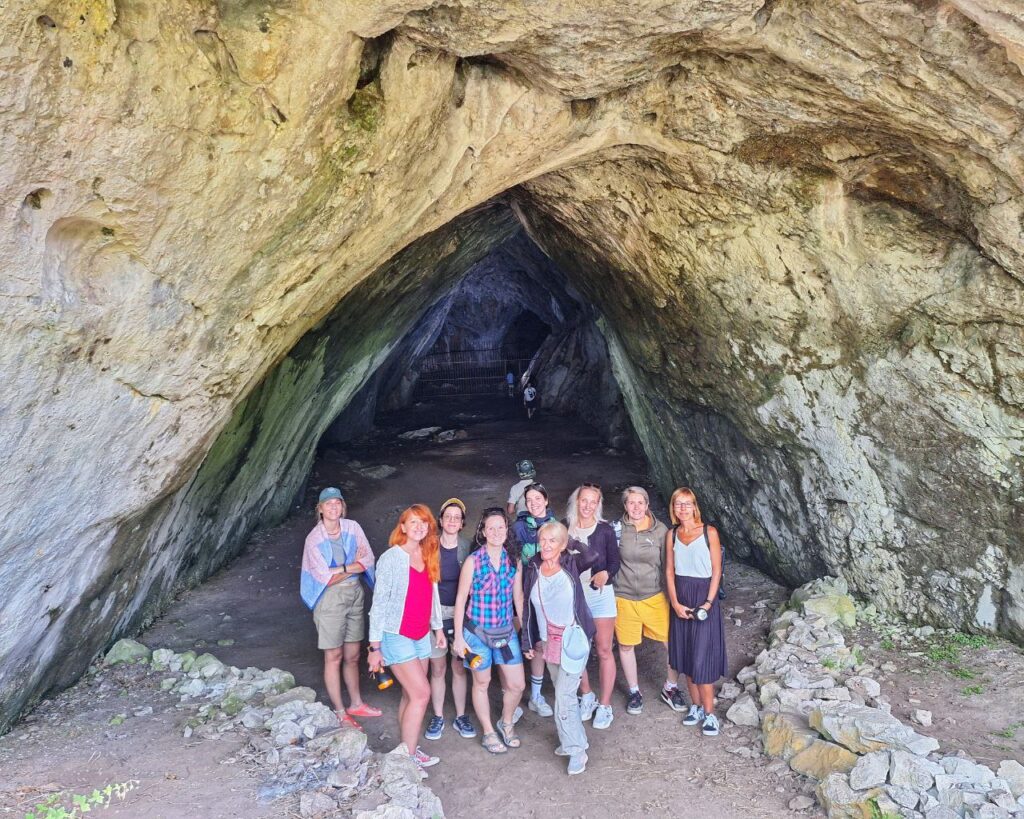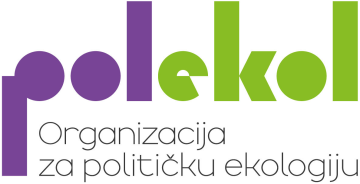The Women’s Network for Nature and the Environment gathered its members at Zlatar from July 12 to 14, 2024, in order to exchange knowledge about financing nature protection and gender budgeting as part of the “Nature’s budget, not a bouquet” workshop. The workshop was attended by 21 activists and representatives of associations and initiatives.
It was an opportunity for members of the network to get to know the work of local activists. A warm welcome was provided by the members of the association Studenac Nova Varoš, who at the very beginning of the event inspired everyone gathered with the mission of their organization: “We want a community that resembles our environment”. Two guests from the local community, who live and work inside the reserve, were also present. They shared their experience with the specific challenges of their environment.
After mutual introduction and networking, Elza Bajrović, bookkeeper from the Special Nature Reserve “Uvac” addressed the gathering, who spoke about the sources of funding and the way the reserve works, as well as the natural beauty and potential of Zlatar. The presentation ended with a discussion on the methods of work and financing of protected areas in Serbia, which was an excellent introduction to the second day of the workshop.

The second day began with a trip to the Special Nature Reserve Uvac. Members of the Network enjoyed riding a catamaran along the winding meanders of Lake Uvački. One of the unmissable stops during this tour is a tour of the Ice Cave, where the temperature is constant throughout the year at 8℃. The cave has been arranged in such a way that it has retained its natural ambience, since it is not illuminated, but one can move through it only with the help of hand and headlamps, with the mandatory presence of the reserve guard. While the members of the Women’s Network cruised on the water, the griffon vultures, for which the gorge of Lake Uvački is famous, cruised above them.
The working day continued with a lecture by Žaklina Živković, “Restoration of nature – regulation of the European Union”. They discussed the fact that while we are living the sixth cycle of species extinction on the planet, nature protection has become a political issue. Živković emphasized that she hopes that after the workshop it will be clearer what is financed in the field of nature protection, and that after that it will be possible to define what women want and what would be the advocacy goal of the Women’s Network on the topic of gender budgeting.
As part of the lecture “Financing of protected areas in the Republic of Serbia” prepared by Dejan Maksimović from UG Stanište and Dragana Arsić from the Association for Forest Protection, the results of a three-year research on the budgetary model of financing nature protection, which includes the structure of managers of protected areas by sector, sources of financing, costs of nature protection activities and total financial resources by manager category, were presented.

The lecturers pointed out that nature protection is the most neglected area of environmental protection, and that the least budget is allocated to active protection measures. Those present were surprised by the fact that Serbia is in 39th place out of a total of 40, as the European country with the smallest percentage of state territory under nature protection. That percentage amounts to a little more than 8.3%, while in the countries of the European Union, it is around 25%. According to the spatial plan of the Republic of Serbia, the goal of 12% of the area being protected in 2020 was not achieved. About 45 larger nature areas are currently awaiting protection declaration. This would increase the territories under nature protection to over 10%. One of the big problems is that the average length of the nature protection procedure in Serbia is 5.5 years, from the submission of the protection study to the body that makes the decision on protection, until its adoption. More than 9 years is the duration of the protection procedure when the previous actions are taken into account (valuation of the value and preparation of the protection study). Ecological Center Staniste, due to the lack of a national register of protected areas, decided to create it by itself and you can find it at the following link: https://staniste.org.rs/registar-zasticenih-podrucja-prirode/
The third day of the seminar was devoted to working in small groups and seeking answers to the questions: What kind of budget do women want in nature protection? Looking for a gender perspective of the budget for nature and environmental protection, the participants mapped the needs, problems and desires for the inclusion of women in the field of nature protection and gender budgeting in nature protection. Some of the ideas for future work on gender budgeting were: to increase the finances of institutions that perform monitoring, to support citizen science and to start research camps for women. Proposals were made for joining women’s cooperatives, encouraging female entrepreneurship, and increasing the number of women working in protected areas. The need to increase funds for projects related to the improvement of infrastructure in protected areas, which would arrange areas suitable for women with children, was highlighted.
The participants of the meeting concluded that when planning the budget, the perspective of women should be included, especially women from smaller communities. It was agreed that this is a topic that will be addressed at future meetings, so that they can develop advocacy models for gender-responsive financing of nature protection.

The activities are part of the “Union of Women” project supported through the ECO-SYSTEM program to support reforms in the environment, implemented by the Young Researchers of Serbia (MIS), and supported by Sweden.
